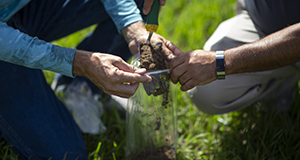Abstract
It is essential to maintain the desired pH of the soil in order to cultivate plants that are robust and prolific. This axiom is true regardless of whether one is growing crops or plants in an agricultural or urban setting. Because it has a direct impact on the availability of essential plant nutrients, soil pH, also noted as the “soil reaction,” is a crucial factor to consider. The internet is rife with misleading information describing the concept of soil acidity and alkalinity as well as how the soil reaction affects plant growth. If you want to change the pH of Florida soil, it is not advisable to use the information found on the internet, as different types of soil require different lime quantities, types, and application techniques. In contrast, some soils may require elemental sulfur application to lower the soil pH. In Florida, recommendations to change soil pH should come from a local expert.
References
FDACS. 2021. “Appendix A: Labeling Guidelines.” How to Comply Fertilizer Manual. https://www.fdacs.gov/content/download/3502/file/Fertilizer%20Registration%20and%20Labeling%20Guidelines.pdf
Sharma, L. K., J. M. McCray, and K. Morgan. 2022. “Plant Essential Nutrients and Their Role: SS-AGR-463/AG462, 5/2022.” EDIS 2022 (3). https://doi.org/10.32473/edis-AG462-2022

This work is licensed under a Creative Commons Attribution-NonCommercial-NoDerivatives 4.0 International License.
Copyright (c) 2024 UF/IFAS

